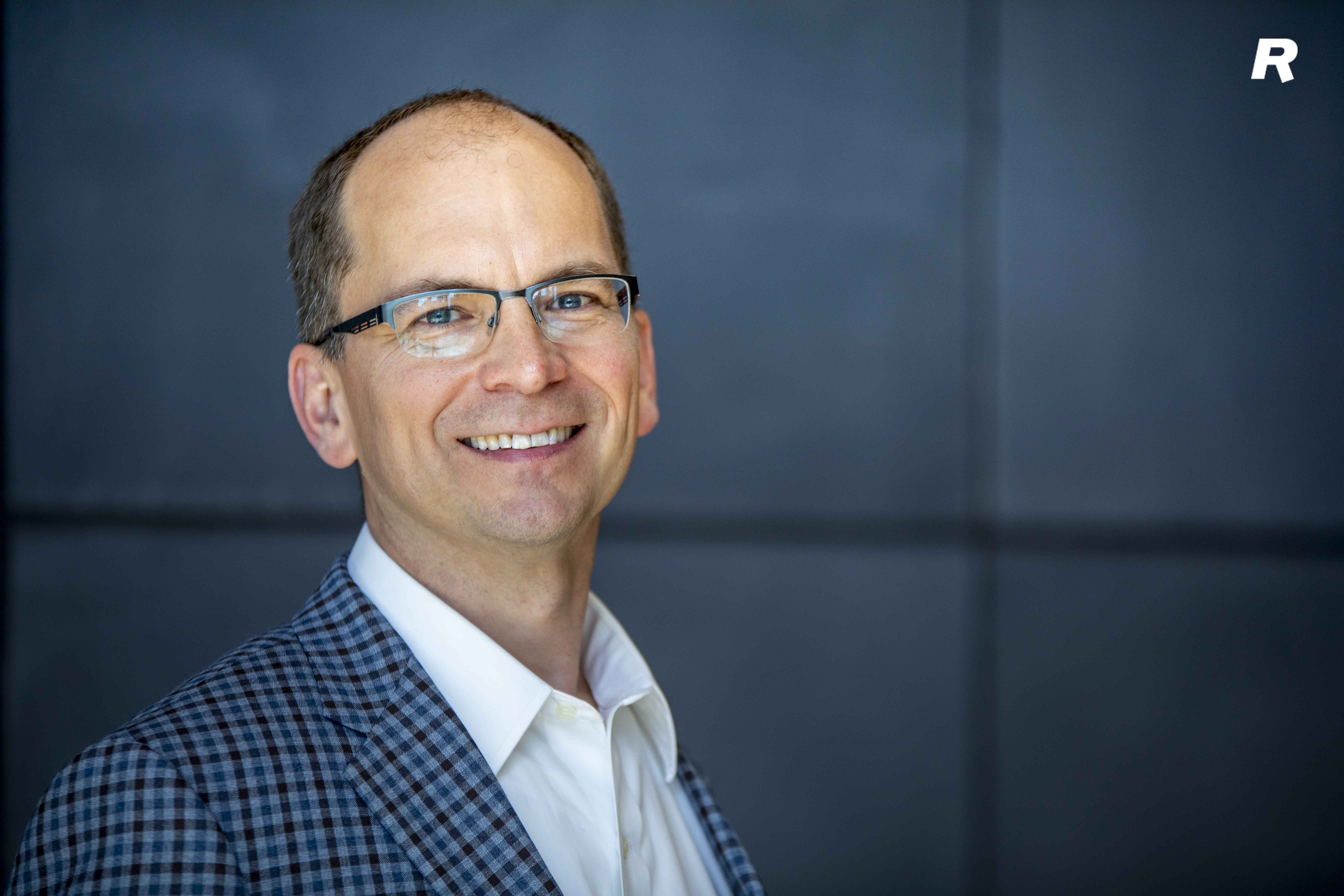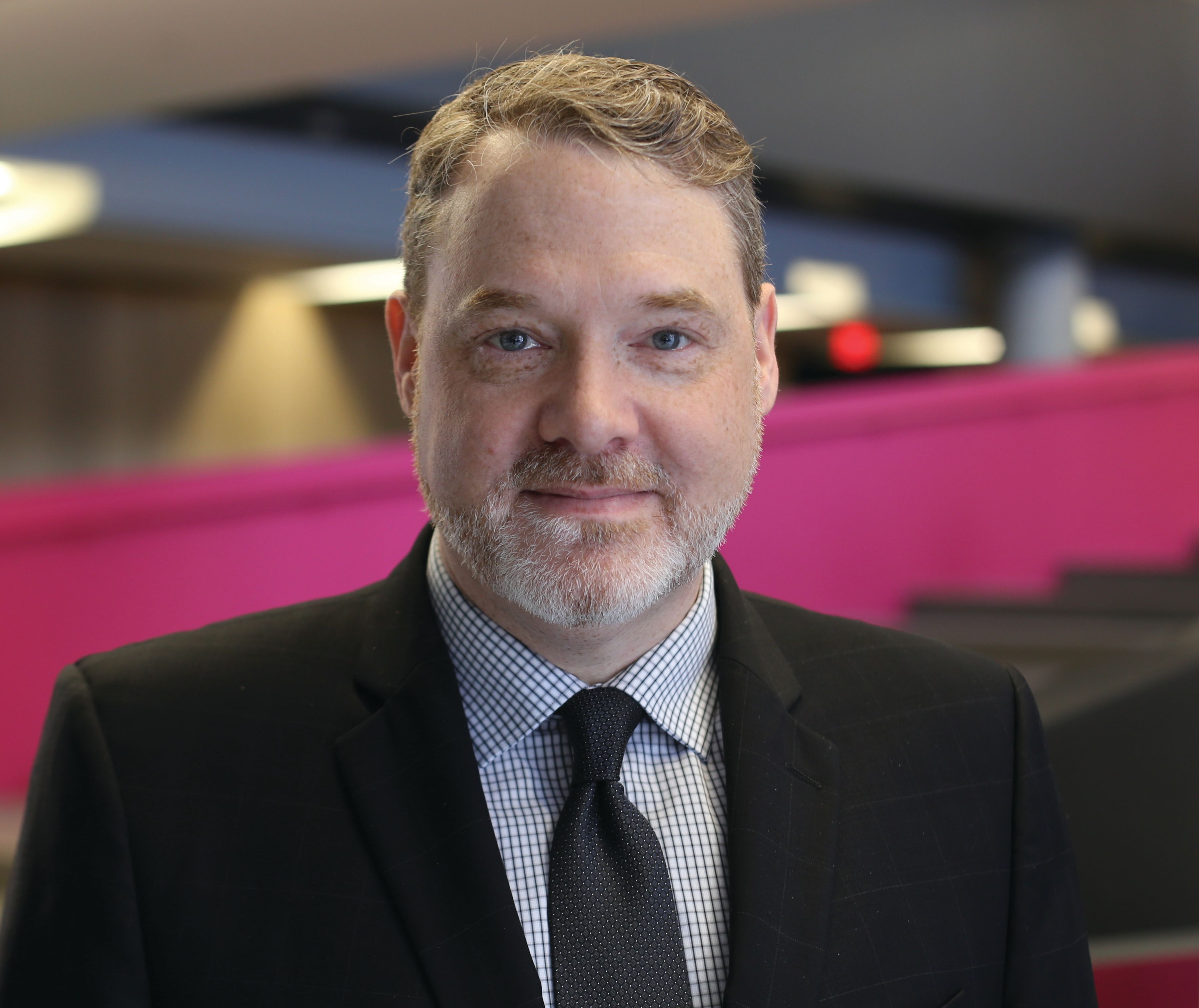It used to be that the best investment decisions were simply the ones that led to the biggest financial gains. However, now, especially after more than a year of living through the global pandemic, and with the growing impact of climate change and the unrelenting calls for gender and racial equality, it's clear that this mindset is not enough. The best financial decisions — the best business decisions, period — require careful consideration of environmental, social and governance factors.
“Leaders are waking up to the fact that they can’t bury their heads in the sand when it comes to environmental and social impact,” explains Kenneth S. Corts, professor of Economic Analysis and Policy and academic director of the Michael Lee-Chin Family Institute for Corporate Citizenship at the Rotman School. “Ultimately, every organization, regardless of the sector or industry it operates in, must grapple with and address these forces.”

Kenneth S. Corts, Academic Director of the Lee-Chin Institute
All businesses need to operate in ways that uphold the principles of sustainable finance, which means ensuring that capital is raised, allocated and deployed in a way that’s cognizant of environmental and social impacts and aligned with sustainable growth.
The Rotman School has established itself as a hub for thought leadership in the sustainable finance space. By drawing on its key strengths in finance, strategy and governance and leveraging its educational and research centres (including the Capital Markets Institute and the Michael Lee-Chin Family Institute for Corporate Citizenship), the Rotman School is producing original and ground-breaking research. Additionally, by engaging with global thought leaders (including Bill Gates and Mark Carney) and renowned organizations (like the International Centre for Pension Management and the Global Research Alliance for Sustainable Finance and Investment), students are hearing these insights first-hand in the classroom. More than that, the School is bringing new insights in this field to an audience well beyond its walls.
Developing original insights
Ready or not, every finance professional or business leader needs to start thinking about sustainable finance, and climate change is one clear reason why.
“When we consider the broad-ranging impact of climate change — including weather events, carbon pricing and other changes to the policy environment, consumer and investor activism, and the massive investments in cleaner technologies that will be fueled by efforts to reduce emissions — it’s obvious that no business, no organization, and no citizen will be left unaffected,” says Corts.
“Right now, all organizations must re-evaluate their business models. They can’t afford not to.”
“The business world is starting to appreciate that sustainable finance doesn't just apply to specialized markets such as green bonds. It's about incorporating a social impact and sustainability perspective into all capital market transactions” says Corts.
— Kenneth S. Corts, Academic Director of the Lee-Chin Institute
This could be a turning point for businesses. As firms begin considering the physical market and reputational risks associated with producing a carbon-intensive product, as well as the business opportunities available in emission-reducing innovations, every executive needs to assess how their organization will adapt and thrive under these circumstances. Once organizations understand the importance of climate change, they are a small step away from understanding the importance of addressing other societal issues like data privacy or racial, gender, and income inequality, all of which have similarly large systemic effects on the business landscape.
“The business world is starting to appreciate that sustainable finance doesn't just apply to specialized markets such as green bonds. It's about incorporating a social impact and sustainability perspective into all capital market transactions,” says Corts.
The impact of sustainable finance operates at three levels, he says.
At the level of the individual firm, executives need to consider their strategic decision-making and move beyond narrow conceptions of what’s relevant to their business to understand the full context, including social and environmental factors.
At a somewhat higher level, financial markets and other aspects of the business environment are changing rapidly to reflect an awareness of the importance of these factors. Asset owners, investment managers, analysts and ratings agencies, as well as financial markets and exchanges are increasingly concerned with ESG criteria, carbon footprints, supplementary non-financial disclosures, and other indicators that firms are paying attention to environmental and social considerations.
Finally, at the level of an entire economy, policymakers, NGOs, central bankers, financial regulators, and development organizations are ensuring that policies and public investments are oriented to long-term sustainable economic growth.
Sustainable finance research at Rotman seeks to drive progress at all three levels. Most of this research is supported by and aligned with the Michael Lee-Chin Family Institute for Corporate Citizenship at Rotman, which is focused on helping business leaders integrate sustainability into business strategy and practices.
For instance, Professor Sarah Kaplan’s recent body of work on the 360° Corporation (which also happens to be the name of her best-selling book and the name of her popular MBA class at Rotman) defines what it means to operate a successful and sustainable business today. Kaplan, who is a professor in the Strategic Management area and a fellow of the Lee-Chin Institute, provides leaders with a framework for considering the range of stakeholder interests surrounding their organization and how to evaluate the trade-offs and risks associated with each decision to ultimately arrive at a direction for moving forward.
She recently expanded this work to address issues at the corporate board level, in a new report for the Lee-Chin Institute, 360º Governance: Where Are The Directors In A World In Crisis?
Others at the Rotman School are taking a slightly different approach. Alexander Dyck, a professor in the Finance and Economic Analysis and Policy areas and the Manulife Financial Chair in Financial Services at the Rotman School, looks at financial markets in the context of corporate governance, corporate finance and corporate social responsibility. His recent papers have shaped public understanding of how institutional investors drive corporate responsibility, blowing the whistle on corporate fraud and the media’s role in asset pricing. Dyck, who is also a fellow at the Lee-Chin Institute, incorporates these topics in his MBA classes on Corporate Finance and Mergers and Acquisitions.
Meanwhile, Lee-Chin Institute Fellow Laura Doering, an assistant professor in the Strategic Management area at Rotman, has recently spoken out about why Canada needs climate-friendly funds.
In addition to publishing original research and op-eds, many faculty members have assumed leadership roles with organizations with a sustainable finance focus. For example, Dyck serves as a director of the Capital Markets Institute, Finance Professor Mike Simutin is the associate director of research for the International Centre for Pension Management and Finance Professor Jan Mahrt-Smith serves as the University of Toronto’s faculty liaison for the Global Research Alliance for Sustainable Finance and Investment.
The School’s engagement and academic scholarship has also attracted big names. Earlier this year, Bill Gates chose the Rotman School as the only Canadian venue for the launch of his new book on how to avoid a climate disaster. Gates, who is a co-chair of the Bill & Melinda Gates Foundation and Founder of Breakthrough Energy, emphasized the need for innovation in preventing a climate disaster. And in another Rotman livestream, Mark Carney, the U.N. Special Envoy for Climate Action and Finance, recently presented his ideas on why climate change needs to be front and centre in finance right now.
The Rotman School has successfully brought other prominent thought leaders to the School through the annual Sustainable Finance Week at Rotman (which features a research roundtable for academics, a case competition for students, and various talks and panels for the public) as well as other public events co-hosted with the Global Risk Institute, Capital Markets Institute, and the International Centre for Pension Management.
Hands-on learning opportunities for students
Insights from research are also making their way into the classroom. Increasingly, sustainable finance topics are being explored in Rotman programs.
“Most of the curriculum changes have been driven by our students,” says Rod Lohin, executive director of the Lee-Chin Institute and the instructor for the School’s popular impact investing course. “Students have recognized that if they want to pursue careers in finance, they need to understand the sustainability dimension to this work. We have a responsibility to prepare them for that.”

Rod Lohin, Executive Director of the Lee-Chin Institute
Climate change and sustainability are frequently woven into classroom discussions in the Master of Financial Risk Management and the Master of Finance programs. Meanwhile, Full-time and Morning/Evening MBA students have the option of completing a sustainability major (which requires completing a collection of courses that cover clean energy, sustainable finance, and social innovation, among other topics), or they can take specialized elective courses.
For instance, in the Sustainable Finance Course taught by Professors Mike Simutin and Jan Mahrt-Smith, students get an overview of sustainability issues and goals and learn how these initiatives are embedded in all areas of finance through lectures and hands-on projects. Meanwhile, in the Impact Investing course, students partner with a business with a strong social or environmental purpose and get first-hand experience raising funds and attracting investors to these social enterprises. Every year, the top student team not only earns course credit but is also invited to represent the Rotman School at the Turner MBA Impact Investing Network & Training (MIINT), organized by the Wharton School of Business. In recent years, Rotman students have taken home the student choice award or nabbed finalist spots.
Beyond the classroom, Rotman students can join the Net Impact Club, which organizes an annual conference on sustainability and connects students to mentors and practitioners operating in the sustainability space. Further, they can compete in a number of annual case competitions including the Accounting for Sustainability Project (A4S) competition, the RBC x Rotman Sustainable Finance Case Competition (this year, Rotman student teams earned the first, second and third place standings) and the Kellogg-Morgan Stanley Sustainable Investing Challenge.
Current and incoming students can look forward to participating in many of these activities, thanks in part to the Royal Bank of Canada (RBC), which recently committed an additional $250,000 over three years to the Sustainable Finance Project at Rotman. This investment will support the continued development and coordination of the Sustainable Finance course, mentorship and networking programs, speaking events, the Rotman School’s Sustainability Week, and student-led sustainability and sustainable finance related activities, such as the Rotman Net Impact Sustainability Conference, and other initiatives.
“The world is changing and our student population is demanding more," says Lohin. "It will be exciting to see the School evolve and develop further in this area.”
“The world is changing and our student population is demanding more. It will be exciting to see the School evolve and develop further in this area.”
— Rod Lohin, Executive Director of the Michael Lee-Chin Family Institute for Corporate Citizenship
Written by Rebecca Cheung | More Faculty Research Profiles »